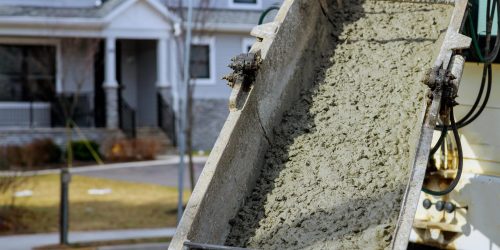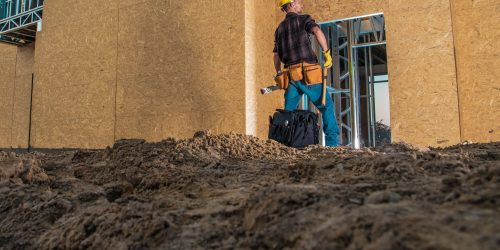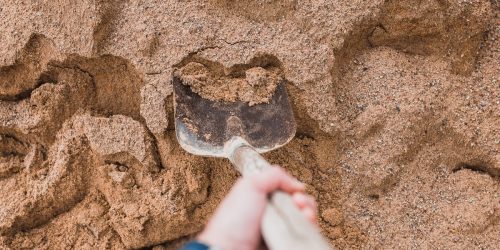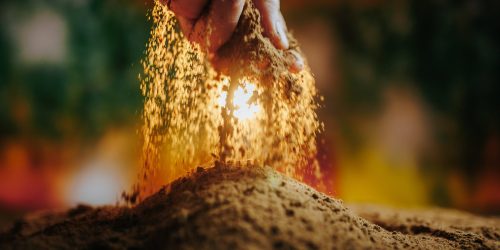
Are you looking to construct a solid and enduring structure in Miami? If so, you’ll want to explore the benefits of mason work. Masonry, known for its strength, durability, and timeless appeal, is crucial in building a strong foundation. From magnificent buildings to stunning architectural elements, masonry has been a cornerstone of construction for centuries. In Miami, where architectural beauty meets resilience against the elements, the benefits of mason work become even more evident.
As skilled craftsmen who work with various masonry materials such as bricks, concrete blocks, and stones, Mason plays a crucial role in construction projects. Their expertise (mason job description) lies in using these materials to create strong, durable, and visually appealing structures.
Here are some key aspects of the role of masons in construction projects:
- Construction Planning: Masons hire and collaborate with architects and engineers to interpret technical drawings, blueprints, and construction plans. They ensure the design specifications and requirements translate into practical masonry structures.
- Material Selection: Masons possess extensive knowledge of different types of masonry materials and their characteristics. They advise on the most suitable materials based on project requirements, budget, aesthetics, and environmental considerations.
- Foundation And Structural Work: Masons are responsible for laying the foundation of a building, which forms the base for the entire structure. They carefully measure, level, and position masonry units to create a sturdy foundation that can withstand the load of the building.
- Wall Construction: Masons construct walls by laying bricks, blocks, or stones precisely and systematically. They use specialized power tools and techniques to ensure proper masonry unit alignment, spacing, and bonding. This process requires precision and attention to detail for a structurally sound and visually appealing result.
- Surface Finishing: Masons are skilled in applying finishes to masonry surfaces, such as plastering, stucco, or veneer. They use their expertise to create smooth, textured, or decorative finishes according to the desired aesthetic and functional requirements.
Benefits Of Mason Work
Mason offers several benefits in construction projects, contributing to structures’ overall quality, durability, and aesthetic appeal. Here are some key benefits of mason work:
- Strength And Durability: Masonry structures are known for their strength and longevity. Masons use durable materials such as bricks, blocks, or stones combined with strong mortar to create solid layouts that withstand various environmental conditions, including extreme weather, earthquakes, and fire.
- Thermal Performance: Masonry materials have excellent thermal properties, providing insulation and regulating the temperature within a building. This can lead to energy efficiency and reduced heating and cooling costs, making masonry structures environmentally friendly and sustainable.
- Fire Resistance: Masonry materials, particularly bricks and concrete blocks, offer high resistance to fire. They do not combust or contribute to the spread of flames, providing increased building safety.
- Sound Insulation: Masonry structures offer good sound insulation, reducing noise transmission from the outside environment and between different areas within a building. This can contribute to a more comfortable and peaceful indoor environment.
- Aesthetic Appeal: Masonry work provides a wide range of design possibilities, allowing for the creation of visually striking and architecturally pleasing structures. Masons are skilled in creating intricate patterns, textures, and decorative elements, enhancing the overall aesthetics of a building.
- Low Maintenance: Masonry materials require minimal maintenance compared to other construction materials. They are resistant to decay, rot, and pests, reducing the need for frequent repairs or replacements.
- Environmental Sustainability: Masonry materials are typically sourced from natural or recycled materials, making them eco-friendly and sustainable. Additionally, their longevity and thermal performance contribute to reduced energy consumption and environmental impact over the life of a building.
Types Of Masonry Materials Used In Miami
In Miami, various masonry materials are used in construction projects, each offering its unique characteristics and benefits. Here are some commonly used masonry materials in Miami:
- Concrete Blocks: Concrete blocks, also known as cinder blocks, are widely used in Miami’s construction industry. They are versatile and can be easily molded into different shapes and sizes. Concrete blocks offer excellent strength, durability, and fire resistance, making them suitable for various applications such as walls, foundations, and partitions.
- Bricks: Bricks are one of the oldest and most traditional masonry materials used in construction. They are made from clay or shale and are known for their strength, durability, and thermal properties. Bricks are available in different colors, sizes, and textures, allowing creative and visually appealing designs.
- Natural Stone: Miami’s rich geological resources make natural stone a popular choice for masonry work. Materials like limestone, coral stone, and marble are commonly used in building facades, walls, and decorative elements. Natural stone provides a timeless and elegant aesthetic, enhancing structures’ overall beauty and value.
- Manufactured Stone Veneer: Manufactured stone veneer is a cost-effective alternative to natural stone. It is made from lightweight aggregates, cement, and color pigments, designed to mimic the look and texture of natural stone. Manufactured stone veneer offers versatility in design, allowing for the creation of various architectural styles.
- Concrete: Concrete is a widely used masonry material in Miami’s construction projects. It comprises cement, aggregates, water, and often additional additives for specific properties. Concrete mix and aggregates provide strength, versatility, and cost-effectiveness, making them suitable for various applications such as foundations, floors, and structural elements.
- Glass Blocks: Glass blocks are transparent or translucent masonry units. They are commonly used in architectural designs to provide natural light transmission while maintaining privacy and security. Glass blocks are often utilized in interior partitions, windows, or decorative features, adding a modern and unique touch to the building.
Mason’s Skills And Responsibility
Mason’s responsibilities go beyond simply laying bricks or stones; they are entrusted with building a strong foundation and ensuring the structural integrity of buildings. Here are some key responsibilities of masons:
- Layout And Planning: Masons are involved in the initial opening stages of a project, working closely with architects and engineers to understand the building plans, blueprints, and specifications. They carefully measure and mark the layout, ensuring accuracy and precision in the construction process.
- Material Selection And Preparation: Masons know different masonry materials, including bricks, stones, and concrete blocks. They select the appropriate materials based on the project requirements, considering durability, aesthetics, and local building codes. They also prepare the materials by cutting, shaping, and cleaning them before installation.
- Construction Techniques: Masons are skilled in various construction techniques, including bricklaying, stone masonry, and concrete work. They use specialized tools such as trowels, levels, and plumb lines to ensure proper installation and alignment, spacing, completion, and mortar application. Their expertise allows them to create solid structures that can withstand the elements and endure over time.
- Mortar Mixing And Application: Masons are responsible for mixing mortar, a mixture of cement, sand, and water, to create a strong adhesive that holds the masonry units together. They carefully apply the mortar between the bricks or stones, using their skills to achieve uniformity and stability in the construction.
- Quality Control And Inspection: Masons continuously monitor the construction process, conducting inspections to ensure that the work meets the required standards and specifications. They pay attention to details, checking for proper alignment, levelness, and overall aesthetics. They inspect the mortar joints for adequate bonding and make necessary adjustments or repairs.
Applications Of Mason Work In Miami
Mason’s work finds extensive applications in various construction projects in Miami. The versatility and durability of masonry materials make them suitable for multiple applications. Here are some common applications of mason work in Miami:
- Residential Construction: Mason work is widely used in residential construction projects in Miami. It is utilized for building exterior walls, foundations, chimneys, and retaining walls. Masons skillfully construct brick or stone facades, adding visual appeal and enhancing the overall aesthetics of residential properties.
- Commercial Buildings: Masonry materials are commonly employed in constructing commercial buildings such as offices, retail spaces, and restaurants. Masons create strong and visually appealing facades using brick or stone, giving commercial structures a professional and inviting appearance.
- Walkways And Driveways: Masonry materials like concrete pavers or bricks create durable and visually appealing walkways, driveways, and patios. Masons skillfully lay out the patterns and ensure proper leveling and jointing, resulting in functional and aesthetically pleasing outdoor spaces.
- Landscaping Features: Mason work often creates attractive features such as garden walls, raised flower beds, and outdoor fireplaces. Masons have the expertise to incorporate masonry elements seamlessly into the natural surroundings, enhancing the overall beauty of landscapes.
- Pool Decks And Water Features: In Miami’s warm climate, masonry materials are commonly used for pool decks and water features. Masons create sturdy and slip-resistant surfaces using concrete or natural stone, ensuring safety and adding an elegant touch to pool areas.
The benefits of masonry are far-reaching, from its unmatched durability to its timeless appeal. Whether envisioning a grand structure or seeking to enhance the beauty of your space, masonry offers a solid solution. Contact us at ASR Materials if you want to explore the world of mason materials in Miami; you’ll discover the endless possibilities it brings to create stunning structures that withstand the test of time.
LOOKING FOR THE BEST SUPPLIER IN SOUTH FLORIDA?
YOU FOUND US, ASR MATERIALS.





